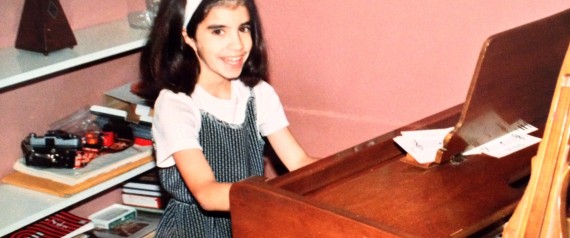
Earlier last month, I once again experienced the profound shock of losing a close family member to cancer. And the emotions which I have experienced again and again flooded back to me in a wave of tears, grief, and despair. The left side of my brain was wracked — I tried to find the logic as to why cancer seemed to be everywhere and attacking my family. I tried to handle and understand the news yet again: It’s our ethnicity and genes. Maybe it’s our diet. Maybe it’s from growing up in a city. My thoughts ran amuck.
My aunt wasn’t the first person I lost to cancer from my family. I lost another aunt, my father’s sister, four years prior — from the same cancer. There are the brave others in my family who have been diagnosed in the past six years and are in remission, having triumphed over a disease that makes our eyes widen and our hearts crumble upon hearing that initial diagnosis. But they’ve prevailed and, to me, are the strongest people I know.
The abhorrent feelings I have toward this disease are always unmasked upon hearing the news: It’s a blur of death, it’s the word ‘cancer’ and what it does to the psyche, it’s silence, it’s grief, it’s a void that will never be filled. But rather than go into a bitter entanglement of thoughts and a somewhat useless diatribe (because, let’s face it, it’s all been said before) about the disease, I would like to take a different approach.
In the spirit of Thanksgiving and the holiday season, witnessing everyone gathering with their families, friends and even strangers, I want to explain how cancer has made me thankful… for life.
For background’s sake, my one aunt encouraged me to pursue my love of art. She was devoted to the subject her whole life, teaching art to thousands of kids at a Catholic high school. Almost coincidentally, my other aunt taught music for decades at a public elementary and middle school, and led the junior choir at church, along with countless other projects. It’s so obvious that their influence is likely unparalleled as they helped kids and teens crack open their brains and discover a surreal world of colors, notes and sounds. I was merely one of them.
Their influence continued into my adulthood — post-piano lessons, chorus rehearsals and carrying around a sketchbook. I’d had dreams of moving to New York City and becoming a writer and artist since I was a teenager, and these two women backed me 100 percent. My last phone call with my one aunt involved me telling her about a job interview in SoHo. She was in the hospital then, and unbeknown to me, she was slowly fighting her last fight. I could hear that life in her voice — the cheer, the joy, the laughter — and feel her smile through the phone. Then, a few weeks later, she was gone.
Witnessing the painful rounds of chemo, the nausea, the weight loss and appetite suppression, words of hope and strength were always offered to me on a silver platter — from my two aunts. I couldn’t help but feel it should have been the other way around, in that I should have been offering words of hope and encouragement to them. But no, these warriors of a perpetual and terminal illness kept smiling, kept their strength and more importantly, dished out their love and almost never showed their agony.
In response to cancer affecting my family, I go to the doctor twice a year and have every test imaginable — I consider it preventative and no one could persuade me otherwise. I have never been diagnosed with cancer, but I refuse to live my life in fear that I could have it someday. I really never understood why one must ‘not sweat the small stuff’, but my aunts leaving this earth made me realize I should take the time to smell the roses, the fresh brewing coffee, and see my family smiling gathered around a table. I can enjoy the fact that when I put my mind to something, I can do it — like moving to New York 12 years after having an epiphany. It’s called living life.
My aunts lived life — and loved life. Even though their lives were cut short by a disease where a cure is hopefully a stone’s throw away, they made me realize that it’s all about loving the large moments and savoring the small ones, such as holding hands with a loved one, meeting up with a long-lost friend for a drink, or watching the colorful leaves swirl in a circle while sitting alone on a park bench.
Cancer made me see that this is what it — life — is all about.
It’s not about a job, a massive checking account, dollar signs or mobbing department stores for sales. It’s about finding and grasping love and happiness, and it exists in all of us — through our friendships, our intimate relationships, and our families. In recognizing this, cancer allowed me to retain the one drop of optimism I had left, and catapult it to the forefront of my now-core.
So, on this Thanksgiving, I give thanks to my family members who have fought against cancer — to those who beat it and those who fought until the end. My two aunts showed me that life is worth living and should be savored daily, hourly and in mere moments. I will never see them again, but those mere moments, hours and days that I had with them continue to embolden my life.
And I couldn’t be more thankful.
KOMENTAR ANDA
